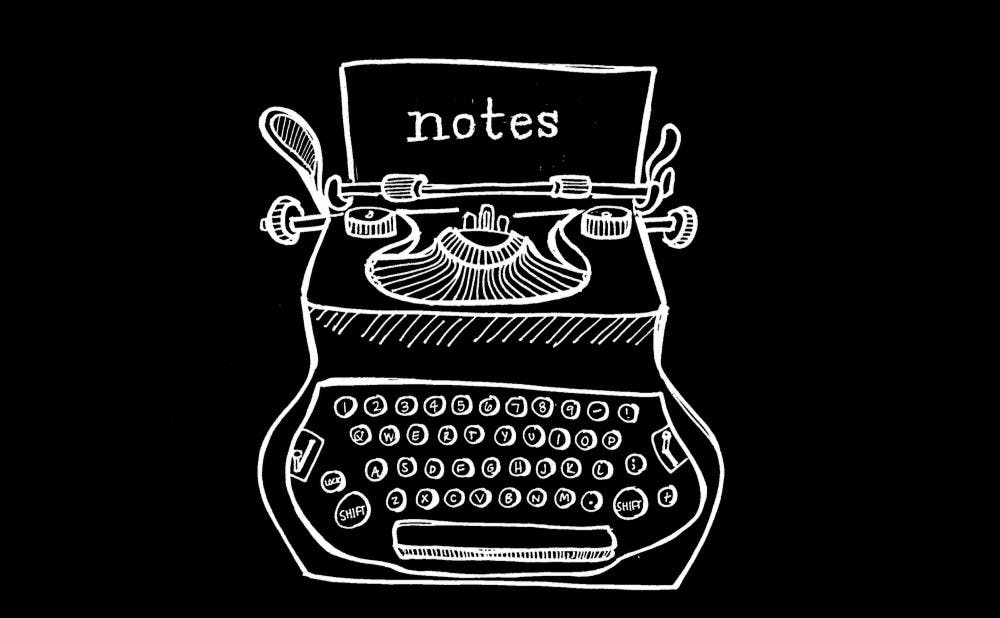I’m pretty sure this is my final staff note for Recess — not that I’ve written many — and I’m going to use this soapbox to advocate for country music, and, more specifically, Townes Van Zandt.
Country music was alien to me growing up, the kind of music that I’d complain about when my parents put it on. My parents would occasionally play it, but always in the form of classic stuff like Johnny Cash, more progressive modern artists like the Cowboy Junkies or Lucinda Williams or soul-influenced country such as Lyle Lovett. Like every white dad in the 1990s, my father also had a copy of Neil Young’s 1992 return to form “Harvest Moon,” which also was kept in steady rotation.
When I started developing my own (in retrospect, horrific) musical taste in middle school or so, country music was pointedly left out, along with most genres that weren’t more or less dad rock. This continued as I grew to like more and more types of music, and I intentionally left country out of my evolving mix.
That changed when a friend introduced me to Townes Van Zandt. The greatest American songwriter of all time, he released six classic, largely acoustic studio albums in addition to a wide variety of sublime live collections. Markedly simple songs, they more often than not consist of elegant guitar picking and a plaintive voice singing lyrics characterized by melancholy, solitude and stories of characters living brutal lives — though not necessarily the lonely type.
“Aloneness is a state of being, whereas loneliness is a state of feeling. It’s like the difference between being broke and being poor,” Van Zandt once said.
Van Zandt died in 1997 at age 52 after a lifelong struggle with heroin, alcohol and about every other substance known to cause bodily harm. Despite his renown among songwriters and his few avid fans, he lived most of his life bouncing between cheap gigs and living in shacks. His songs have been covered by countless bands and solo musicians, and Van Zandt counted fellow outlaw country stars Guy Clark, Steve Earle and Jerry Jeff Walker as his friends during his life.
Van Zandt blew the doors off of country music for me. While a little bit of the stigma I once assigned to the genre still figures in my library, I’m working towards educating myself. While the sheer size of some artist’s back catalogues is intimidating (sorry Willie — I’ll probably never get around to most of your albums, as great as “Phases and Stages” and “Red-Headed Stranger” are), I’ll now say that I can at least try to appreciate the subtlety and depth of the oft-maligned genre.
Country is more than Van Zandt tragedies or Cash outlaw ballads(though the best songs are always the saddest ones). It’s people like Gram Parsons, one of the earliest to synthesize country and rock both as a solo act and with the Flying Burrito Brothers, a synthesis led him to fall in with the pre-“Exile” Rolling Stones before he died at age 26. It’s well-known acts like Wilco, one of the more universally liked bands still making music, and the Drive-By Truckers, who subvert stereotypical countrified politics over fiddle, rangy guitar and tight harmony. It’s Gillian Welch and Dave Rawlings, acoustic guitar pros who write songs that make the sad characters in Van Zandt’s finest tunes sound like trivialities. It’s Phosphorescent’s Matthew Houck, who channels the usual clichés (his “Song for Zula” manages to quote Cash and Midler classic “The Rose” in its first line) while combining psychedelia and traditional country tropes. It’s musicians like Jason Molina who, like Van Zandt, have posthumously come to rely on their tragic stories to add sincerity and authenticity to their already heart-breaking songs. And of course, it’s Willie, Merle, Dolly and the rest — all so distinct that the definition of country all but fails to exist.
For me, no one will ever live up to the standard set by Van Zandt, but there’s definitely an asymptote. Artists have approached his status, but as of yet he’s untouched. Not only is his music uniquely stirring and affecting, but it opened a gateway into a whole group of musicians I previously couldn’t have been bothered with. It’s a genre with remarkable emotion behind its best work, and the storytelling is unparalleled by anything that isn’t hip-hop (the similarities in stories told by those genres is striking, with many of them focusing on down-on-their-luck protagonists rising against all odds or successful ones falling in the face of life’s various burden). Van Zandt is the archetype of all of this, and I can’t recommend him enough.
Give Van Zandt’s “Our Mother the Mountain” a spin, and next thing you know I’ll be seeing you at Bill Callahan on Oct. 14.
Alex Griffith is a Trinity senior, Recess staff writer and former Recess editor.
Get The Chronicle straight to your inbox
Signup for our weekly newsletter. Cancel at any time.

